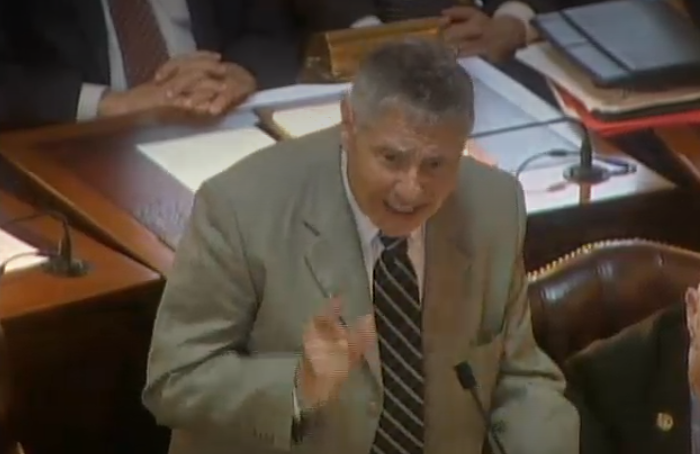
New Jersey has long had a requirement for business entities that hold government contracts to file a Business Entity Annual Statement (“Form BE”). The Form BE, normally due on March 30 of each year, will be due on April 1, 2024 this year, as the first business day following March 30. If your business entity received payments of $50,000 or more (in the aggregate) as a result of New Jersey government contracts during the 2023 calendar year, the Form BE must be electronically filed.
There are two versions of the Form BE. The Long Form filing must be used when the business entity or a covered individual made a “reportable” contribution during the 2023 calendar year. The Long Form filing requires disclosure of detailed information on 2023 government contracts and political contributions. In contrast, a Short Form filing may be used when no “reportable” political contributions were made by the business entity or its covered individuals during 2023. The Short Form filing is a 1-page document, with no detailed contract or contribution information.
Although this filing obligation has been in effect since 2006, this will be the first filing due since the enactment of the New Jersey Elections Transparency Act (the “ETA”), which made important updates to the Form BE (and to New Jersey campaign-finance and pay-to-play laws writ large).
The two biggest changes under the ETA for the Form BE relate to political contributions.
- Crucially, the definition of a “reportable” contribution changed midway through 2023. For the first portion of 2023, a reportable contribution was $300 per reporting period. Then, following the 2023 primary election, the reportable threshold dropped from $300 to $200 per reporting period. Business entities must be careful to understand what the reportable threshold was at the time the contribution was made.
- In previous years, all reportable New Jersey political contributions were subject to disclosure on the Form BE. The ETA has carved out two categories of political recipients that are no longer relevant for this filing. For this year’s filing and going forward, contributions made to political party committees (State, County, or Municipal) and to Legislative Leadership Committees are not subject to disclosure, no matter the contribution amount. For example, this means that a business entity that made a reportable contribution to a political party committee, but made no other reportable contributions, would be entitled to submit the Short Form filing.
In addition to the changes for this year’s filing, the following existing procedures should be kept in mind.
- There is a filing obligation for any business entity that received aggregate payments from NJ government entities of at least $50,000 during the 2023 calendar year. The key factor is payment actually received in 2023, even if a contract was awarded in a previous year. In addition, once the $50,000 threshold is reached, there is still a filing obligation regardless of whether the business entity has any political contributions to report. Each separate business entity that meets this filing threshold must file its own report—for example, we have clients that file multiple Forms BE each year, one for each of their separate business entities that reach the $50,000 threshold.
- All New Jersey government contracts are relevant for the Form BE, and the amounts received would count toward the $50,000 filing threshold. In other words, not only are contracts at the State, County and Municipal levels relevant, but so too are contracts with Boards of Education, Fire Districts and Independent Authorities. All contracts should be included on your list – regardless of method of contract award and regardless of the amount you were paid for each contract. Remember: the $50,000 threshold is an aggregate (not per contract) threshold.
- On the contribution side, it is not only political contributions made by the business entity itself that are relevant. Instead, covered contributors may include subsidiaries, PACs, officers, partners, principals, directors and the spouses of the business entity’s officers, partners, principals, and directors.
Avi D. Kelin is a Partner with Genova Burns LLC, and chairs the firm’s Corporate Political Activity Law and Autonomous Vehicle Law Practices. He regularly assists companies with developing and implementing Political Activity compliance policies and procedures.
This column is for educational and informational purposes only and is not intended and should not be construed as legal advice. It is recommended that readers not rely on this column, but that professional advice be sought for individual matters.
(Visited 21 times, 21 visits today)
Click here for the full Insider Index
The New Jersey Election Law Enforcement Commission (ELEC) recently announced important updates to the state’s Pay-to-Play Annual Disclosure Requirements. These changes are aimed at increasing transparency and accountability in political fundraising and spending, particularly in the context of government contracts.
One of the key updates is the expansion of the definition of “government contracts” to include agreements with independent authorities, boards, and commissions that receive public funding. This change is significant because it means that more entities will now be subject to the Pay-to-Play disclosure requirements, ensuring that a wider range of political contributions and expenditures are reported and monitored.
Additionally, ELEC has increased the reporting threshold for government contractors from $50,000 to $17,500. This means that any entity that receives or is seeking a government contract worth $17,500 or more will now be required to disclose their political contributions and expenditures. This change is intended to capture more transactions and provide a more comprehensive picture of the relationships between government contractors and political campaigns.
Furthermore, ELEC has implemented new reporting requirements for entities that make contributions to political action committees (PACs) that support or oppose candidates for public office. These entities will now be required to disclose their contributions to these PACs, as well as any contributions made by the PACs on their behalf. This change is designed to shed light on the flow of money between government contractors and political campaigns, ensuring that all relevant information is made public.
Overall, these updates to the Pay-to-Play Annual Disclosure Requirements represent a significant step forward in promoting transparency and accountability in New Jersey’s political process. By expanding the definition of government contracts, increasing reporting thresholds, and requiring disclosure of contributions to PACs, ELEC is working to ensure that the public has access to information about the relationships between government contractors and political campaigns. These changes will help to prevent undue influence in government contracting and promote fair and open competition for public contracts.



